#dionysus devotee
Text
me: can i ask for some rain?
me: nah it would be too much sorry forget about it
*30 seconds later it starts raining*
me: omg?? did my gods do it?
the gods: yeah <3 here you go kid
#pagan#paganism#witchcraft#deity work#aphrodite devotee#bastet devotee#apollo devotee#dionysus devotee#hades devotee#persephone devotee#hecate devotee#morana devotee#hellenism#kemetism#rodzimowierstwo#rodnovery
30 notes
·
View notes
Text
Zeus and Hera devotees who feel intimidated by them
Poseidon devotees who live far from the sea
Demeter devotees who live in the city
Hades and Persephone devotees who fear death
Dionysus devotees who are perplexed by madness
Aphrodite devotees who struggle to love themselves
Apollo devotees who struggle with inspiration
Artemis devotees who are saddened by animal death
Ares devotees who are too tired to keep fighting
Athena devotees who are easily manipulated
Hestia devotees with unstable home lives
Hermes devotees who get anxious over new things
Every one of you is so valid and so loved by your gods. They love you, and they want you to know it.
#paganblr#helpol#paganism#hellenic pagan#pagan#hellenic polytheism#zeus devotee#hera devotee#poseidon devotee#hades devotee#persephone devotee#hestia devotee#aphrodite devotee#apollo devotee#hermes devotee#ares devotee#dionysus devotee#athena devotee#artemis devotee
695 notes
·
View notes
Text
Lord Dionysus

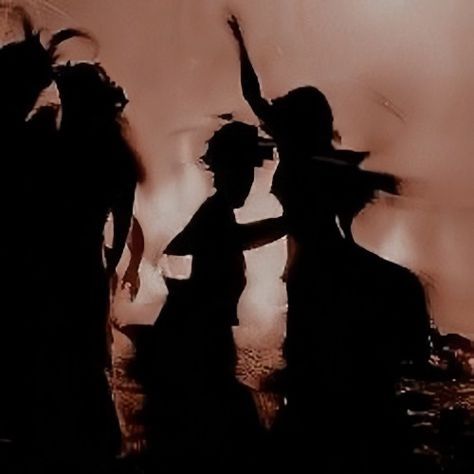







God of wine-making, orchards and fruit, vegetation, fertility, festivity, insanity, ritual madness, religious ecstasy, and theatre
i take requests
#dionysus devotee#devotee#greek gods#greek mythology#ancient greek#dionysus deity#dionysus worship#hellenic pagan#paganism#pagan#hellenic polytheism#hellenic polytheistic#hellenic devotion#hellenic polythiest#hellenic deities#hellenic gods#hellenic polytheist#hellenism#hellenic pantheon#lord dionysus#dionysus devotion#dionysus
286 notes
·
View notes
Text
Dionysus & Bacchus cheat sheet deep dive

Signs he's reaching out • smelling wine all of a sudden, craving wine, You feel a twinge of madness, dreams with his attributes with him, seeing references of him everywhere
Herbs •psalakanthos plant, Grapes and their vines, Figs, Bay laurel, Barley, Pine, Pomegranate, Fennel, apples, berries, weed, Silver Fir, Bindweed, poppy, wheat and hops leafs, wildflowers, pine cones, Apple seeds, Blazing star. I think he would like Cinnamon, mint, feverfew (happiness), Pepper, basil, chives, horseradish (courage), orange, lemongrass, marjoram (insight), vanilla, sorrel, cinnamon (love)
Animals• Oxen and wild animals, asses, Leopards, Panther, Cheetah, serpents, rams, dolphins, tigers, lynx, panthers, goats, bats, griffons, bulls
Colors •purple, green, gold, Red, Black, White.
Patron of• fruit and intoxitation, Parties, Festivities, Banquets, Drinking, Bacchic Revelry, Madness, Bacchic Frenzy, Insanity, Hallucination, Homosexuality, Effeminacy, Cross-dressing, Forest Wilderness, Wild vegetation, Predatory big cats, Reincarnation, The path to Elysium, Comedy and Tragedy Plays, Playwrites, Actors, bartenders, the arts, non-binary people.
Curses• violence, and sickness, Destructive insanity, madness
Blessings• pleasure and fun, Religious frenzy (in the orgiastic cults), Ecstasy, Afterlife in Elysium (paradise), getting a bigger friend group, charismatic going up, getting a romantic partner.
Diety of• wine-making, orchards, fruit, vegetation, fertility, festivity, insanity, ritual madness, religious ecstasy, theatre, partying, Epiphany, weddings, death, sacrifice, sexuality, dancing, immortality, and reincarnation, uninhibited freedom, as well as the subversion of the powerful, ecstasy, and abandon, swamps and marshes.
Crystals• Amethyst, grape agate, Garnet, Ruby, deep red stones, tiger eye, serpentine, leopard jasper, amber, green opal or jade, carnelian, rose quartz (someone had it on their alter for him, so I added it here.), bloodstone, sugilite, purple fluorite, ametrine lepidolite
Mortal or immortal • immortal
Zodiac • Taruas
Vows/omans• none
Number• 7
Morals• he is morally ambiguous
Married to• Ariadne
Past lovers• Althaia, Ampelos, Aphrodite, Erigone, Kronois, Pallene, Physokoa, Polymnos.
What he favors in devotees• free-spirited, out-of-the-norm, wild lifestyle, gender fluid, transgender, nonbinary people. People are restricted wanting to become free.
Personality• He brings joy, ecstasy, and merriment, but also delivers "brutal and blinding rage”, he's a very chill guy, many say he is sassy. I met him once, and he respects people's boundaries.
Home• Mount Olympus
Equivalents/most resemblance • Osiris, Hades, Sabazios, Yahweh, Bacchus, Liber, Tammuz, Orotalt, Fufluns, Acan, Jesus.
Epithets• Acratophorus, Ἀκρατοφό.ρος “giver of unmixed wine at Phigaleia in arcadia, Acroreites at Sicyon Adoneus a Latinised form of Adonis and is also used as an epithet for Bacchus, AegobolusΑἰγοβόλος "goat-shooter" at Potniae in Boeoria, Aesymnetes Αἰσυμνήτης “ruler" or "lord" at Aroë and Patrae in Achaea, Agrios Ἄγριος "wild", in Macedonia, Androgynos Ἀνδρόγυνος ”Androgynous” specifically in intercourse referring to the god taking both an active male and a passive female role, Anthroporraistes, Ἀνθρωπορραίστης “man-destroyer" a title of Dionysus at Tenedos, Bassareus, Βασσαρεύς "fox-skin", which item was worn by his cultists in their mysteries. Bougenes, Βουγενής or Βοηγενής “borne by a cow", in the Mysteries of Lerna,
Braetes, Βραίτης "related to beer" at Thrace, Briseus Βρῑσεύς "he who prevails" in Smyrna, Bromios Βρόμιος "roaring” and "roar of thunder" refering to the wind amd primarily relating to the central death/resurrection element of his myths and also the god's transformations into lion and bull and of those who drink alcohol and refers to Dionysus' father, Zeus "the thunderer", Choiropsalasχοιροψάλας “pig-plucker" Greek χοῖρος = "pig"(which was used as a slang term for the female genitalia as A reference to Dionysus's role as a fertility deity), Chthonios Χθόνιος “the subterranean”, Cistophorus Κιστοφόρος "basket-bearer and ivy-bearer" because baskets are sacred to the Dionysus,Dimetor Διμήτωρ "twice-born" which Refers to Dionysus's two births, Dendrites Δενδρίτης "he of the trees" as a fertility god, Dithyrambos Διθύραμβος used at his festivals referring to his premature birth, Eleutherios Ἐλευθέριος “the liberator" also a epithet shared with Eros, Endendros ("he in the tree"), Enorches "with balls" with reference to his fertility, or "in the testicles" in reference to Zeus' sewing the baby Dionysus "into his thigh" which means his testicles used in Samos and Lesbos, Eridromos"good-running" in Nonnus' Dionysiaca, Erikryptos Ἐρίκρυπτος "completely hidden" in Macedonia, Euaster Εὐαστήρ from the cry "euae", Euius (Euios), from the cry "euae" in lyric passages, and in Euripides’ play “the bacche, Lacchus Lακχος a possible epithet which is associated with the Elusinian Mysteries, The name "Iacchus" may come from the Ιακχος (Iakchos) whicj is a hymn sung in honor of Dionysus.
Indoletes, Ἰνδολέτης, meaning slayer/killer of Indians Due to his campaign against the Indians, Isodaetes, Ισοδαίτης, meaning "he who distributes equal portions", cult epithet which is also shared with Helios, Kemilius, Κεμήλιος and kemas: "young deer, pricket",
Liknites "he of the winnowing fan", as a fertility god connected with mystery religions ( a winnowing fan was used to separate the chaff from the grain.)
Palazzo Massimo, Rome, Lenaius, Ληναῖος "god of the wine-press", Lyaeus, or Lyaios Λυαῖος, "deliverer” and "loosener") which refers to him as who releases from care and anxiety,
Lysius, Λύσιος "delivering, releasing" At Thebes there was a temple of Dionysus Lysius, MelanaigisΜελάναιγις "of the black goatskin" at the Apaturia festival,
Morychus Μόρυχος “smeared" in Sicily, because his icon was smeared with wine less at the vintage, Mystes Μύστης "of the mysteries" at Tegea in Arcadia, Nysian Nύσιος according to Philostatus he was called like this by the Ancient indians Most probably, because according to legend he founded the city of Nysa, Oeneus, Οἰνεύς "wine-dark" as god of the wine press, Omadios “flesh-eater", Eusebius writes in Preparation for the gospel that Euelpis of Carystus states that in Chios and Tendos they did a human sacrifice to Dionysus Omadios,
Phallen , (Φαλλήν) (probably "related to the phallus” at Lesbos, Phleus "related to the bloοm of a plant", Peudanor Ψευδάνωρ "false man" referring to his feminine qualities in Macedonia,
Pericionius, Περικιόνιος "climbing the column (ivy)" a name of Dionysus at Thebes, Semeleios or Semeleius or Semeleus an obscure epithet meaning 'He of the Earth' and 'son of Semele' Also “Son of Semele, Iakchus, wealth-giver”,
Skyllitas, Σκυλλίτας “related to the vine-branch" at Kos, Sykites, Συκίτης "related to figs" at Laconia,Taurophagus, Ταυροφάγος “bull eating", Tauros Ταῦρος “a bull", Theoinus, Θέοινος wine-god of a festival in Attica, Τhyiοn, Θυίων "from the festival of Dionysus 'Thyia' (Θυῐα) at Elis", Thyllophorus, Θυλλοφόρος "bearing leaves" at Kos, Dionysus and Zeus absorbs the role of Sabazios (a Thracian/Phrygian deity)
Facts• Dionysus was the last god to enter Olympus, When Dionysus had grown up lady Hera made him into a state of madness so he wandered through many countries of the earth, He was a student of the famous centaur Chiron who taught him how to dance, The common names Dennis and Denise are said to be derived from Dionysus. he hated the sight of an owl
Roots• Ancient Greece, Greek mythology, Mount Pramnos on Ikaria
Offerings • Honey, Meat, Alcohol (especially wine), Fruit, Cakes, Poetry, Songs, Spices (ex- cinnamon), Blood or liquids resembling blood, He thinks those "wine mom" signs that you get in cheap gift shops are hilarious, Grape juice, Intoxicants, Grapes, Olive oil, Apples, Figs, Eggs, Goblets, Curved daggers, Bull horns, Snake skin, Leopard or tiger print objects, Purple candles, Theatre masks, Sexual toys, Percussion instruments, Wine bottles, Fake/toy grapes, Leaves or curls from grapevines, Pine needles, Pinecones, Apple seeds, Bindweed, Wildflowers, Toys photos or art of any big cats, snakes, Hymns, Songs you’ve written, Any art that you create, Any stories that you create, Art, pictures of the comedy, Wine corks, Wine labels, Toy or miniature drums, milk, water from the sea (he has a strong connection with the sea), Decorative beads, party beads, flashy jewelry, Wine glasses, Shot glasses, Corkscrews, Sparkling cider, Grape flavored things, Cheese, hallucinogens, Nips (small alcohol bottles), Bottle opener, Beer/soda tabs, Alcohol bottles with cool labels, Costumes, NatureFig/fig newtonsBull imagery, Donkey imagery, Bones, Antlers, Dead/preserved animals, Hiking gear, Seeds, Concert/festival tickets, Locks of hair, Shaven beard hair, Pride swag, ravagant clothes/clothes that make you feel good.
Devotional • learn about sacred sex, shamanic journeying, responsible entheogen use, and alcohol as a sacrament, read “The Secret History” book, Make a playlist for Him, Dance and sing to your favorite songs or songs you’d think He would like, Throw a feast in His honor, Remembering to take your medication and taking care of your mental health, Support/donate to your local theatre in His name, Be a part of the theatre, Stand up for those that are marginalized, Write stories/plays for Him, Invite Him to watch plays or movies with you (especially comedies or tragedies), Throw parties or attend them, Attend festivals, Attend a wine tasting, Go on wine tours, Attend parades, Masturbate or partake in sexual acts for Him (if you’re comfortable doing so And over 18), Drink alcohol or grape juice, Smoke po, Learn about winemaking, Support local vineyards, Wear wreaths made from ivy, Wear faux leopard or tiger print, Wear the color purple, Pray to Him for things while intoxicated/high, Visit your local winery and participate in a grape-stomp, do some Homebrewing in his honor, Grow a garden in his honor, Make your own ritual tools in his honor, Collect art, do Glamourbombs in his honor, Pretend to be somebody else in his honor, go out to a club in his honor, listen to music in his honor, read in his his mythos, write things for a ritual and write a prayer for him, eat some grapes or have some grape juice or sparkling grape juice (or wine if able and of age), listen to party music, read plays, watch musicals or plays (ex- high school musical, Hamilton), listen to musical soundtracks, learn about the history of theatre, learn about viticulture and vineyards, do things that bring you pleasure, listen to party soundscapes, watch documentaries about any of his sacred animals, Trip intentionally/spiritually, Learn about substance abuse/recovery, Destigamtize drug users, Learn about harm reduction, Make home videos, Write poetry, Act, Dress up, Go to the woods, Dance/sing in the woods, Meditate in the woods, Learn wilderness safety and first aid, Learn what to do when encountering a wild animal, Go off the beaten path, Explore new areas, Pick up litter, Forage, Recycle bottles, Grow fruit, Try new fruits, Have sex (let the partner know beforehand it's in Diyonisus honor, 18+), Masturbate (18+), Have threesomes/swing (ask him before and make sure the other participants know it's in Dionysus's honor, 18+.), Finally, give into that one kink you’ve been ignoring (you know the one, 18+), Learn about consent with partners, Learn how to preserve dead animals, Learn about different life cycles (ex-plants, animals), Learn about immigration in your area, Learn about different cultures, Try foreign foods, Learn a new language, Learn about your ancestry, Help immigrants in your area, Grow your hair out, Keep a Manifest/Keep a manifestation journal, Use Sexual/creative energy to manifest, Shed your old self, Do Self-reflection/self-exploration, Identify areas where you overindulge (ex- food, substances, spending).
Symbols• Grapevine, ivy, phallus, Thyrsus, theatrical masks, Leopard Skin, Panther, Cheetah, the animal called asses, cymbals, swords, or serpents, rams, laurel, asphodel, dolphins, tiger, lynx, panther, horns, goats, his chariot pulled by 2 leopards, masks in general.
Siblings• Ares, Athena, Apollo, Artemis, Aphrodite, Hebe, Hermes, Heracles, Helen of Troy, Hephaestus, Perseus, Minos, the Muses, the Graces.
His friends/gets along with• Maenads and Bacchantes and Satyrs and Sileni and Pan and Priapus
Attendees• Seilenos (God of Drunkenness), Pan (God of Shepherds & Pastures) the Satyroi and Seilenoi (spirits of Fertility & the Wild) The Bakkhantes and Mainades (Nymphe and Women revellers) Komos Satyriskos (cup-bearer)
Appearance in astral or gen• Dionysus often took on a bestial shape and was associated with various animals, often wearing an Ivy wreath, the thyrsus, and the kantharos (a large two-handled goblet) In early Greek art he has represented as a mature male, bearded and robed holding a fennel staff tipped with a pine-cone, but later on he was portrayed as youthful sensuous, naked or semi-naked androgynous youth and effeminate with brown hair and pale features, often holding grapes and drinking wine.
Parentage• Zeus and Semele, some sources also say Zeus and Demeter, some say Zeus and Persephone, but he always sends up with Persephone as a foster mother or as a biological mother, but before his reincarnation, his parents were Ammon and Amalthea.
Pet• leopards
Children • Priapus, Hymen, Thaos, Staphylus, Ononpion, Cumus, Phthonus, the Graces and Deianira, Seilenos, Pan, Satyroi & Seilenoi, Bakkhantes & Mainades, Komodo’s
season and festivles• Diyonosus festivals were bacchanalia, Dionysia, Anthesteria, Dionysian, Lenaia, Panathenaia, his season was spring and March and April
Day• 11th to the 13th of the month of Anthesterion, around the time of the January or February full moon.
Sacred places• Boitia in Greece, naxos Greek, island Edina in western Thrake, his holiest shrine was Mt kithairon (Nysa) in Boiotia Greece, he also declared war on India. A sacred place is the theatre.
Status• Greek god in the major theoi, and an agriculture Demi God.
Pet peeves• Uderestemating him, he probably won't like it if you ignore him
Music• Disco, show tunes, psychedelic rock, acid folk, Greek folk music, EDM, classical, new wave, art pop, vaporwave, just anything you can dance and sing to.
Tarot• Temperance, fool card, three of cups, the tower, 9 of cups (based off of how people see him through their tarot cards)
Scents/Inscene • Pine incense, frankensince, patchouli and vanilla, nutmeg, mulled wine, storax, and Benzoin, he dislikes lavender.
Prayers•
Regular prayer
Dionysos, god whose arrival is swift and certain, enduring friend of women and men whose welcome is warm, bringer of light, we see you in shadows. Dionysos, granter of great blessings, your presence is a heady wine. Kind-hearted god, to each you give as is fitting, each vessel you fill only as we can bear, and yet with even a sip, we are drunk upon you, and our faith is affirmed. Awesome god, by our own will we drink deeply, with you we become lost, we wander, we are found.
Litany to Dionysos
Dionysos of the vine, rich-tressed god of wine, potent and lusty, unmixed, undiluted, with full force you come to us, vital and robust, rich and strong and surprisingly sweet. Dionysos, I praise and honor you, I thank you for your blessings. Ivy-bearing Dionysos, god of the green, of the power of root on stone, the force of life that will make its own way in spite of all who labor to hold it back, no will or work can bind your might. I praise and honor you, I thank you for your blessings. Dionysos of the deep earth, of the dark world, of the unknown expanse beneath the black soil, beneath solid stone, of mysteries you know much, of death and of what lies beyond. God of secrets, I praise and honor you, I thank you for your blessings. Dionysos the inspiring, granter of words of prose or poesy, words heard best by the drunken and the mad, words forgotten with the passing of night and delight. Bacchus, granter of rare transport, I praise and honor you, I thank you for your blessings. Dionysos Soter, holder of the hearts of men, you free us from the cares of the world, each brilliant frenzied moment a shining jewel, each glimpse of the sacred more precious than gold. I praise and honor you, I thank you for your blessings. Kindly Dionysos, granter of good to men and women, giver of gifts to all who seek your blessing. Gracious Dionysos, accepter of offerings great and small, friend of mankind, I praise and honor you, I thank you for your blessings.
Regular Prayer to Dionysos
Dionysos, deep-hearted one who knows the souls of men and women, whose hand is ever open, ever within reach. Dionysos, god who runs in the dark, who sees with eyes shut tight, who dances to the heart’s strong beat, ever are you yourself, ever constant, ever changing god of those who are trapped, those who seek your truth and their own, those who seek vision beyond seeing, those who seek wisdom beyond knowledge, those who seek the self, pure and sweet, those who seek clarity beyond definition, who seek to embrace the uncertain, to hold, but loosely, to what is true beyond trust.
Regular prayer to Dionysos
I praise Dionysos, lord of the vine, lord of
the far reaches of the mind; in the thick of the woods, along darkened paths, in the shadows of dusk and of dawn, you roam the world, the satyrs and the pretty nymphs dancing in your wake. Son of Zeus and fair-haired Semele, bold-hearted Semele, who dared to look into the face of glory, beautiful Semele who you carried into life again, Semele reborn who men called Thyone; beloved of clever Ariadne, quick-witted one, so dear to your heart, your bright-eyed bride and consort; Dionysos, friend of women, friend of the blissful, wild-eyed maenads, pilgrims and pioneers, those who seek, your cheer and inspiration, those who seek your release, from sorrow and despair, those who are lost in joy, and those who have found themselves in you. Dionysos, god of the darkest dark and the deepest deep, boundless one, endless one, fathomless one, in you we see the edges of ourselves, in you, we find our life’s journey, in you we find our home.
To Dionysos
I call to Dionysos, great god of the vine,
son of thundering Zeus and headstrong Semele, loving husband of warm-hearted Ariadne. From the east you came, old before the ancients, throughout the elder world were you beloved; in Naxos and Boitia were you celebrated, in temples and in the savage wilderness, the fleet-footed maenads running in your wake. The sweetest, strongest wine is ever your drink; the mind’s release, the body’s loosening, your gift. O Dionysos; thyrsus-shaker, ivy-crowned god, we see you in the shadows, we see you on the edges, we see you in the haze of ecstasy, where we know the truth of passion, where we find
the essence of our being. Bacchus, I call to you!

| Sources & websites in comments. |
#the gods#hellenic devotion#hellenic polytheism#doing the research for you#hellenic worship#greek gods#greek mythology#qoutes#ancient greek#dionysus#greek pantheon#hellenic#dionysus deity#hellenism#dionysus worship#dionysus devotee#dionysus god#Dionysus#paganblr#paganism#polytheist#pagan#deity worship#deity work#bacchus#dionysos#the bacchae#Bacchush#hellenic gods#hellenic paganism
456 notes
·
View notes
Text
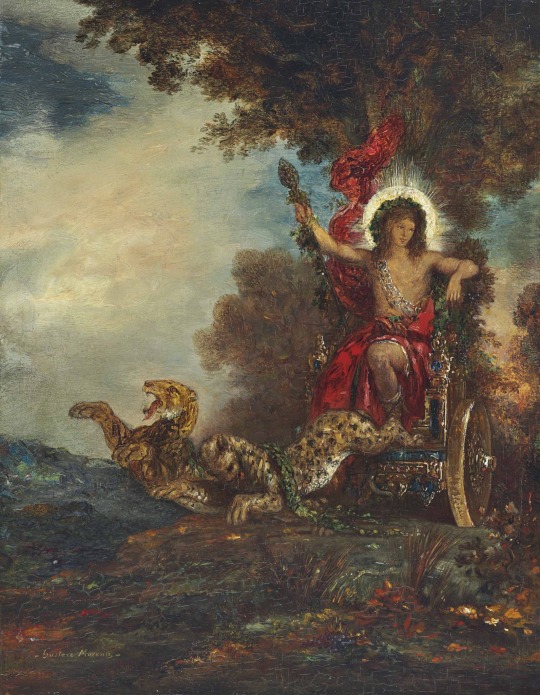
The Triumph of Bacchus, 1875 - oil on canvas.
— Gustave Moreau (France, 1826–1898)
#I just LOVE him#greek deities#ancient greek mythology#greek myth#ancient greek#ancient greece#hellenic worship#hellenic polythiest#hellenic deities#hellenic polytheistic#hellenic#hellenic pagan#hellenism#theoi worship#theoi#Dionysus#dionysos#dionysus devotee#dionysus deity#dionysus devotion#deity work#bacchus#pagan#classical art#art#painting#oil on canvas#gustave moreau#greek mythology#greek gods
242 notes
·
View notes
Text
Something I would like to see Dionysians do is support the small wine industry. Small time wineries struggle immensely, especially those that choose more sustainable grape practices. So, instead of simply buying bottles from the grocery store, you can try and experience small industry wine by:
Visiting wineries is the best and first exposure to wine, in fact, you can often get cheaper and higher quality bottles—as a winemaker, the best wines are reserved for wine clubs and tasting rooms.
Join winery wine clubs. They often have exclusive benefits and unique wines for their patrons.
Explore unique, rare, and nearly extinct grapes. Indigenous grape varieties often risk extinction by the “noble” varieties such as Chardonnay.
Learn about how the distribution of the wine industry works. Wines like barefoot are made cheaply, while more expensive bottles often have more cultural, social, etc., nunances.
Learn more about and explore the joys of wine, without shame or fear. It’s not as intimidating as people assume!
And most of all, enjoy wine. A good wine is a wine you enjoy. He is there, loving, serving glasses and tending to vines.
#currently taking a marketing class for wine#was thinking..#dionysus deity#dionysus devotee#dionysus worship#dragonis.txt#witchcraft#paganism#hellenic polytheism#witchblr#pagan#helpol#hellenic deities#hellenic paganism#hellenic pagan
229 notes
·
View notes
Text
Low energy Devotional Acts for when you have no energy (or time, or money, etc.) pt. 4
🍇Dionysos🍇
- eat some grapes or have some grape juice or sparkling grape juice (or wine if able and of age)
- listen to party music
- read plays
- try your hand at writing your own play! Doesn’t have to be good or anything! So long as it makes you happy it’s good enough!
- watch musicals or plays
- listen to musical soundtracks
- learn about the history of theatre
- learn about viticulture and vineyards
- wear something tiger or leopard print
- take care of your mental health
- listen to a devotional playlist for Him
- do things that bring you pleasure: eat your favorite food, have your favorite drink, engage in an activity that you enjoy, listen to your favorite music, etc. it can be anything doesn’t have to be something huge
- listen to party soundscapes (may sound odd but it’s something and it works)
- watch documentaries about any of his sacred animals
🏹Artemis🏹
- watch documentaries or do a deep dive about plagues and diseases
- learn about archery
- watch archery competitions
- learn about hunting
- learn about national parks, national forests, state parks, nature reserves, and the like!
- do nature and/or animal related coloring pages
- listen to nature soundscapes
- learn about deer
- read up on herbalism
- learn about the moon! It’s phases, it’s importance, etc.
- listen to a devotional playlist to Her
- learn about animal conservation efforts
- watch nature documentaries/shows or animal documentaries/shows
#hellenic polytheism#helpol#hellenic pagan#hellenic pantheon#hellenic paganism#artemis devotee#artemis devotion#artemis deity#dionysus worship#dionysus devotee#dionysus deity#dionysus devotion#low energy low effort devotional acts#cause we all have those times where we just need something simple
522 notes
·
View notes
Text
Items for Lord Dionysus’ altar
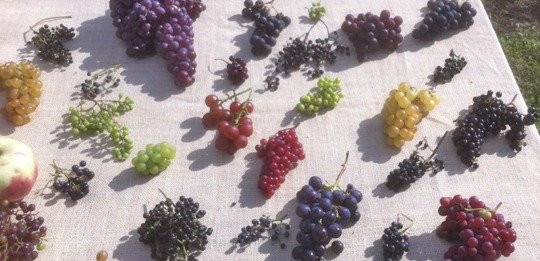
Wine
Grapes
Statues and/or images of Dionysus
Apples
Goblets
Wine glasses
Ethically sourced furs
Statues of leopards, tigers, snakes, and/or bulls
Theater masks
Play programs
Phallic imagery
Fake or real plants
Pinecones
wildflowers
Wine corks, bottles, or labels
Bottle caps
Pride flags and/or pins
Condoms
Candles
Scripts
Garnet
Ruby
Amethyst
These are all suggestions and common associations of Dionysus. If you do not have some of these or don’t feel comfortable owning some of these, that is valid. We all have different practices and how you do yours will differ from mine.
#dionysus#hellenic#dionysus deity#hellenic devotion#paganblr#pagan blog#pagan#hellenic witch#hellenic polytheist#dionysus devotee#dionysus devotion#dionysus worship#dionysian#dionysus god#deity work#deity devotion#deities#hellenic deities#deity worship#paganism#hellenic polytheism#eclectic pagan#hellenic pantheon#hellenic pagan#pagan community#hellenic paganism#pagans of tumblr#pagan witch
162 notes
·
View notes
Text
so i've been connecting much more with aphrodite and dionysus lately...
(it took me so long to make their altar but lOOK HOW PRETTY IT IS!!)


#hellenismos#greek gods#greek mythology#greek paganism#hellenic community#hellenic paganism#hellenic polytheism#hellenic worship#hellenic deities#ancient greek#greek myths#hellenic gods#hellenic pagan#hellenic polythiest#hellenism#aphrodite#aphrodite altar#aphrodite devotee#dionysus#dionysus devotee#aphrodite and dionysus
2K notes
·
View notes
Text




Here are some photos of me and @devieboii Anthesteria celebration set up
We set up mini altars for Ares, Aphrodite, Hecate, and of course Dionysus and Hermes
Happy Anthesteria everyone !!!🍷🍇⚕️
#hellenic polytheism#paganism#altar#aphrodite devotee#ares devotee#aphrodite#ares#hecate#hecate devotee#dionysus#dionysos#dionysus devotee#hermes devotee#hermes#anthesteria#witchblr#altars#mini altars#hellenism#helpol#hellenic deities
177 notes
·
View notes
Text
“In the worship of the latter [Dionysos], women found a religiously approved vehicle for venting their feelings in an ecstatic manner that contradicted and transcended the male-defined mentality of the Greek city-state. When possessed by the madness of Dionysos, women suddenly found themselves free of the patriarchally imposed definitions of self, womanhood, and sanity. Hence, from a nonpatriarchal perspective, the madness of Dionysos had a certain logic after all.”
[Arthur Evans, “The God of Ecstasy: Sex Roles and the Madness of Dionysos”, 1988, p. 18]
#hellenic polytheism#hellenic pagan#dionysus#dionysus deity#dionysus devotee#hellenic community#helpol#hellenic gods#the bacchae
1K notes
·
View notes
Text
what my deities see when i give them their offerings

#pagan#paganism#witchcraft#deity work#greek gods#aphrodite#aphrodite devotee#bastet#bastet devotee#apollo#apollo devotee#dionysus#dionysus devotee#morana#morana devotee#marzanna#kemetic#kemetism#hellenic deities#hellenic pagan#hellenic polytheism#slavic deities#rodzimowiercza wiara#rodzimowierstwo
306 notes
·
View notes
Photo

and i sing of dionysus — o! ivy-crowned
god with a smile as dark as the secrets he
keeps. i sing and i dance, a flurry of humanity
let loose until i am joy unbound! the bindings
cannot hold me just as they could not hold you!
sweet-smelling god, i ask you to bless me as
you bless the vines of the wood. may i grow
unfettered, reaching up, up, up! may my voice
be loud! may my body shift and change! and may
this change be a blessing unto you! oh, dark-curled
god, flushed with wine and eternal youth — may
i bloom, bloom, and bloom! give me the will to
never back away from the awe-struck joy that it is
to be alive — may i never shrink but only grow as
you grew from impossibility. may i find favor in your
heart & may your hands turn my meekness into
wild opportunity.
#dionysus#dionysus god#dionysus worship#dionysus deity#dionysus devotion#dionysus devotee#hellenism#hellenic#helpol#hellenic polytheism#hellenic polytheist#hellenic paganism#greek gods#greek mythology#hellenic devotion#hellenic witch#deity devotion#deity work#heity#hymnals#x
666 notes
·
View notes
Text

🍇💘 happy rural dionysia! 💘🍇
This is my altar for today! Theres a candle for Dionysus in the middle (back), bracelet I made for him on the left, fluorite hearts carving on the right, and a peen shaped cookie in the middle (front)
As for dionysia activities, today I’ve prayed to him and accidentally fell asleep, made sugar cookies (with vanilla frosting & sprinkles), read hymns, prayed again, and now I’m probably gonna play some video games and maybe later watch a movie :3
#I like that my celebration has been kinda more laidback#especially bc I have some mystery ailment that’s causing me much pain and discomfort#so I’ve been able to do most of these things from my bed lol#my devotion is serious but also I’m a silly lil guy and also I’m in pain#dionysus#dionysus devotee#rural dionysia#country dionysia#festivals#hellenic polytheism#hellenic polythiest#hellenic pagan#my altar#jay says stuff#forgot to mention I painted my nails last night in honor of him for dionysia early cuz I didn’t want to do too much today lol
167 notes
·
View notes
Text
why some gods are more commonly worshiped than others
So, we all know that some deities are much more commonly worked with and worshiped than others, and most of us have our own ideas as to why. I think there’s a multitude of reasons, including the unsavory myths surrounding them, cultural bias, and lack of pop culture fame. However, the factor I want to talk about in this post is this: a lot of the less popular deities are deities with less obvious/direct impacts on our lives.
I’m going to go through each of the 12 Olympians (plus Hestia) and explain how I believe this impacts our view of them and how we can recognize and get closer to them in our everyday lives. I’m only doing the 12 Olympians because I am most familiar with the Hellenic pantheon and if I did every single deity in this post, it would take a million years. I might do other deities in the future if anyone is interested or I feel called to.
Zeus:
So, I have to address the elephant in the room on this one. The big reason that people are wary of working with/worshiping Zeus is because of the popular myths surrounding him. With that out of the way, another thing influencing his worship, or lack thereof, is the fact that many people only think of him as the god of thunder, lightning, and rain. So, for the people that live in very dry areas, especially areas in a drought, it might feel unimportant to worship him.
However, that is silly, as Zeus is not only the god of rainstorms. He also rules over the sky as a whole, all forms of weather, law and order, destiny and fate, and leadership.
Some ways to connect to Zeus in your day-to-day life are admiring and appreciating the sky and the weather, being thankful for nice weather, following fair rules and laws, acknowledging their importance, and being appreciative of them, taking initiative when necessary, and being a good leader if you’re in a leadership role. Zeus affects everyone in a very direct way, but a lot of us fail to realize it.
Hera:
Another deity whose worship is negatively impacted by her mythology is Hera. She is also affected by the common misconceptions about her dominion. For lots of people, when they think of Hera, they think of weddings. Everyone knows she’s the goddess of marriage, but a lot of people ignore the part that comes after the wedding, and weddings aren’t exactly an everyday occurrence, so this means a lot of people skimp out on their worship of her.
She is not only the ruler of weddings though. She also rules marital harmony (the part that comes after the wedding), family, women, and a protector of women during childbirth/some say the goddess of birth itself.
Some ways to connect with her in daily life are spending time with your family and/or partner, showing appreciation to your family and/or partner, setting healthy boundaries and having an open line of communication with your family and/or partner, researching parenthood/childbirth before you have kids or if you already have kids, expressing your femininity (this goes for men to, everyone has different levels of femininity and masculinity, no matter the gender) if you feel comfortable doing so, celebrating/appreciating the miracle of birth and fertility, and just in general being a good family member, partner, and parent.
Poseidon:
Poseidon also has negative connotations due to his myths, though to a lesser extent than Hera and Zeus. Many people also choose not to worship him because they live inland far from the ocean. They feel disconnected from him because they’re so far from his domain (or so they think). Many of us don’t take into consideration his other aspects besides being the lord of the sea.
However, he also lords over earthquakes, any ocean-related storms (such as hurricanes and tsunamis), horses, droughts, and floods. If you have a connection to horses or experience a lot of floods, earthquakes, and/or ocean-related storms, you probably have a deeper connection with Poseidon than you think.
Some ways to involve him in your everyday life include being aware of and prepared for any incoming storms, possible floods, droughts, and earthquakes, getting involved with horses if that’s something you are interested in and capable of doing, conserve water, support foundations dedicated to cleaning the ocean, hurricane/drought/flood relief, and horse rescues if you are able, staying hydrated, doing what you can to reduce pollution (like not littering and picking up garbage off the ground), learning about geology/the ocean and the creatures in it/horses, and just appreciating water, horses, and the earth.
Demeter:
Demeter is an interesting case because I feel like a lot of us know how directly she impacts us but don’t feel close to her because of how uninvolved most people in first world countries are from the harvest. Most people inhabiting developed nations don’t grow our own food, so we aren’t knowledgeable about planting and harvesting, therefore we don’t feel connected enough to Demeter to worship her, much less devote ourselves to her.
She is primarily the goddess of the harvest and agriculture, but she also presides over fertility, plants in general but specifically grain, the life cycle, sacred law, and soil.
Some ways you can include her in your daily routine are planting a garden or even just a few flowers, appreciating and being grateful for the food you eat, educating yourself on what types of plants grow in your area and how to grow/harvest them, growing your own food when possible, learning about the life cycle, acknowledging the beauty of life and death, enjoying nature, and grounding yourself with the earth.
Athena:
Athena is perhaps the most popular deity on this list so far, but she is still underappreciated in the modern era. I’m not exactly sure why she is worshiped so little. Perhaps it is because many people find her primary domain (wisdom) to be boring or maybe they just don’t think they’re “smart” enough or “good” enough to worship a goddess so revered as Athena (which I personally think is likely in a lot of cases).
Athena is not only the goddess of wisdom but also war, good council, weaving and sewing, handicraft of any form (pottery, arts and crafts, etc.), and practical reasoning. You don’t have to have a certain “level of intelligence” in order to connect with her, only the desire to gain wisdom and knowledge.
Some ways to honor and connect with Athena in your everyday are learning about what you’re passionate about, reading, doing any form of crafts or handiwork, sewing or weaving, using your reasoning skills when you need to, making well-informed decisions, asking for and listening to advice from people more knowledgeable than you (if the advice is good), controlling your temper and impulses, learning how to channel your anger into something productive, standing up for yourself when necessary, and just in general pursuing wisdom and knowledge.
Ares:
Ares is also a victim of unfavorable myths and representation in pop culture, which makes him less popular to worship. Unlike many of the other deities on this list who are unpopular only in the modern era, Ares was never popular, even in Ancient Greece. He suffers from having a domain that not many individuals like and most people nowadays will never directly experience. Most people in most developed countries will never go to war and a lot won’t even know anybody directly impacted by war, so they don’t think worshiping Ares is important. Seeing the Russia-Ukraine war is not enough for a lot of people because they’re just not there. In reality, everybody is impacted by war all the time, but I think a lot of people just don’t really consider how deeply it affects them. War is a core foundation of the human experience, but a lot of us fail to realize it.
Ares is the god of war (particularly brutal war), courage, battlelust, civil order, and the spirit of war personified. For this reason, I believe a lot of people are also afraid to worship him, but war is a constant in the human experience, whether we like it or not (which most of us obviously don’t), and Ares is much more important than people give him credit for.
Some ways to connect with Ares on the daily are being as courageous as you possibly can (without being stupid, of course), educating yourself on wars of the past, why they occurred, how they went down, etc., educating yourself on and perhaps getting involved in ongoing wars (what I mean by this is just spreading awareness and donating money if you can), being an activist for causes that are important to you, standing up for yourself, learning how wars from the past and ongoing wars are still affecting people in the modern day, acknowledging both the positive and negative aspects of war, and channeling your anger in a productive way.
Hephaestus:
Hephaestus is unpopular, in my opinion, mostly because people either think he’s unattractive and wrongfully judge him for it and/or they don’t do metalwork themselves, so they think that he has little impact on their lives. Of course, that’s not the only thing he rules over, but that’s what he’s most known for, so people tend to forget him.
Hephaestus is not only the god of metalwork and blacksmithing, but also fire, volcanoes, carpentry, the art of sculpture, metallurgy, artisans, and technology in general. (I personally also see him as a protector of people with disabilities, but that’s just a UPG.) The device you’re using to read this post right now is a blessing of Hephaestus.
Some things you can do to include him in your daily life are acknowledging and appreciating all the ways technology helps you everyday, building and putting together things (this can be as simple as building with legos or doing a jigsaw puzzle), building a fire in a fireplace or creating a bonfire if possible, appreciating the beauty of fire and acknowledging how it benefits you, sculpting if that’s something you enjoy, and creating new things (even doing art falls under Hephaestus’s sphere of influence). Anytime you are creating something new, you are honoring Hephaestus.
Aphrodite:
Aphrodite is the first deity on this list that I feel doesn’t suffer from a lack of popularity, likely because love is something almost everyone has some form of experience with. Aphrodite impacts us all in a very obvious, direct way, which makes approaching her easy and desirable. It’s crazy how much of our lives revolve around love.
Aphrodite is the goddess of all forms of love, beauty, sexuality, desire, lust, fertility, and procreation.
Some ways you can honor Aphrodite are by being a good friend, family member, and partner, seeing the beauty in everything, setting boundaries and having healthy communication in your relationships, loving the little things in life, being kind and loving to others, seeing the beauty in yourself and others, having confidence in yourself, not feeling shame over lustful feelings, educating yourself on reproduction and healthy relationships, not judging others for their physical appearance, and appreciating the beauty of life and fertility
Artemis:
Artemis is less popular than Aphrodite, but she doesn’t have the lack of popularity that the other deities on this list do. She has a very direct impact on people’s lives as well. The moon is something everybody has experience with and it comes out everyday and nature is everywhere, which makes her sphere of influence very noticeable, hence the popularity. Nature and wildlife is also everywhere and has a very easily observable effect on our lives. She is also a very empowering protector of women, which adds to her popularity.
She is the goddess of the moon, the hunt, nature, wildlife, young women, animals, virginity, archery, sudden death of women and girls, and childbirth.
Some ways to get closer to Artemis everyday are appreciating the beauty of nature and the moon, treating all animals with kindness (unless they’re endangering you or something), volunteering or donating to animal shelters if possible, not littering, cleaning up litter, learning archery if you are able and want to, getting involved with feminist movements and other movements you’re interested in, help hurt animals or women that need it, if you go hunting, thank your prey after you kill it and use all parts of the body that you can, thank all the meat that you eat for their sacrifice and don’t take it for granted, get educated on reproductive health, treat all people, but specifically women, nature, and wildlife with respect and kindness, learn about the wildlife and nature in your area, and learn about moon cycles and how the moon affects the earth
Apollo:
Apollo is arguably the most popular deity among modern day polytheists, which makes sense given the sheer amount of domains he rules over. Health, the sun, art, prophecy, and archery are probably the first things that come to mind for most of us, but that only begins to cover the things that he rules over.
Apollo is the god of health, archery, prophecy and oracles, music, all forms of art, plague and disease, protection of the young, the sun, knowledge, herds and flocks, light, truth, guilt, poetry, protection of cities, and more (if I listed everything, we’d be here for days). So you can probably see why he’s so popular.
There are so many things you could do to honor him in your daily life. You can make art, music, or poetry, you can listen to music, read poetry, or look at art, you can keep yourself as healthy as you can, you can learn archery if you’re able, you can help the sick and the young in any way you can, you can sit outside and enjoy the sunlight when it’s out or just open your curtains, you can learn about things you’re interested in, you can try to be as honest as possible, you can work through your guilt and overcome it, you can protect children if you see they’re in danger, you can learn an instrument, you could share your knowledge with other people, and I’m sure you could think of much more given his wide sphere of influence.
Hermes:
Hermes is probably the second most popular deity in modern days after Apollo. Again, this makes sense given how many things he has dominion over. His realm of influence is also very important and easy to see the direct influence of in your real life, which also boosts his popularity. He’s also said to be the “most human” god because he interacted with them the most often through his messages and being a psychopomp, and he’s known to be quite easy-going and easy to work with, which definitely helps.
He is the god of communication, herds and flocks, travelers, hospitality, trade, thievery, cunning, heralds, diplomacy, language, writing, athleticism and competitions, astronomy, astrology, merchants, wit, speed, commerce, and he was a psychopomp and messenger of the gods. Like Apollo, I’m sure there’s some things that I’ve missed, but if I covered everything it would take forever.
There are soooo many things you can do to connect with Hermes, more than I could ever list, but some things you can do are improving your communication skills, setting boundaries in your relationships, travelling if you want to and are able, learning a new language, journalling, working on your writing skills, being kind and hospitable to strangers, talking to people, doing sports/taking a walk/anything athletic, participating in competitions if that’s something you enjoy, learning about astronomy and/or astrology, and being diplomatic in your conversations with others (unless you have a good reason not to). Again, I’m sure there’s much more, but these are just some ideas.
Dionysus:
Dionysus is another fairly commonly worshiped deity among current polytheists. Unsurprising considering how popular alcohol and theater is in most cultures. Dionysus has always been and will always be popular due to his fun, chaotic nature and how popular his sphere of rule is.
He is the god of alcohol (specifically wine), theater, madness, ecstasy, festivity, insanity, orchards and fruit, vegetation, fertility, and wild frenzy.
Some things you can due to get closer to Dionysus in the day-to-day are drinking alcohol if you are of age (responsibly), watching live theater and movies/tv, doing things you enjoy, dancing (bonus points if you’re dancing erratically), eating fruit or drinking fruit juice (especially grapes), taking care of your mental health, educating yourself on mental health, learning about the history of theater, and just enjoying life.
Hestia:
Hestia is another deity that does not get enough appreciation. She used to be one of, if not, the most universally worshiped deity, but now it’s very rare to find someone that regularly worships her. I think maybe a part of it is that she’s considered more “boring,” but I also think lots of polytheists are uneducated on what she actually has influence on. I think people hear that she’s the goddess of the “hearth” and think that she must be outdated since we don’t have hearths anymore. Meals also aren’t as valued as they were back in Ancient Greece because they are so much easier to access, so she just isn’t quite as relevant as in the past.
Hestia is the goddess of the hearth, the home, sacred and sacrificial fire, virginity, family, and the state. She has some very important influence in our life, but a lot of people just don’t know what she’s really the goddess of.
Some things you can do to honor Hestia are cooking, cleaning, burning a fire in your fireplace or starting a bonfire if you’re able, being kind to people, being good to your family, and being a contributing member of the state.
I hope some of you found this useful. If you disagree with me on anything, that’s alright. My word isn’t law. This is just my opinion, and you’re free to leave yours in the comments. There are many nuances and details that are left out of this post because it’s not comprehensive, so just know there’s a lot I left out. If you got this far, thanks for reading, and I hope you got something out of this :)
#helpol#deity work#hellenic polytheism#hellenic pagan#hellenic deities#hellenic devotion#pagan#paganism#spirit work#aphrodite devotee#apollo devotee#hermes devotee#dionysus devotee#witchcraft#witch#EPHEMERAL: HELLENIC POLYTHEISM
480 notes
·
View notes
Text
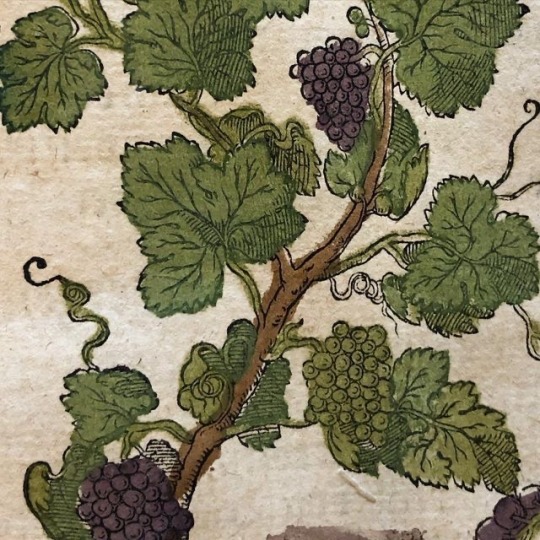






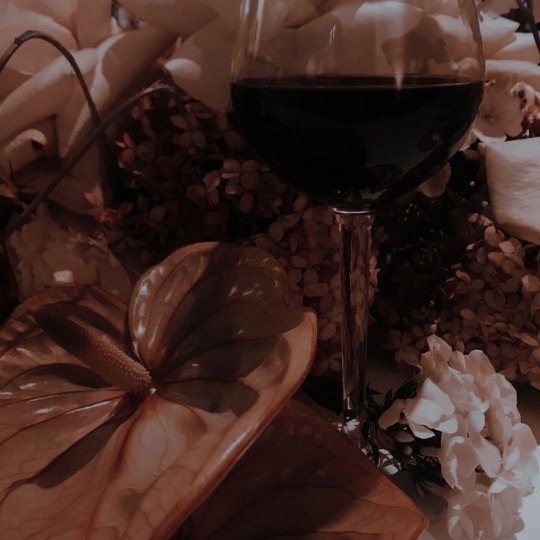

Come, Eleutherios, and kiss me with your wine-tasting lips.
#greek mythology#greek gods#greek pantheon#hellenic polytheism#hellenic#hellenic gods#hellenism#greek myth#hellenic deities#hellenic worship#hellenic polythiest#hellenic pagan#greek deities#moodboard#aesthetic#dionysus devotion#dionysus deity#dionysus devotee#dionysos#dionysus#theoi#theoi worship#deity work#e offering#queer#queer aesthetic#queer pride
135 notes
·
View notes